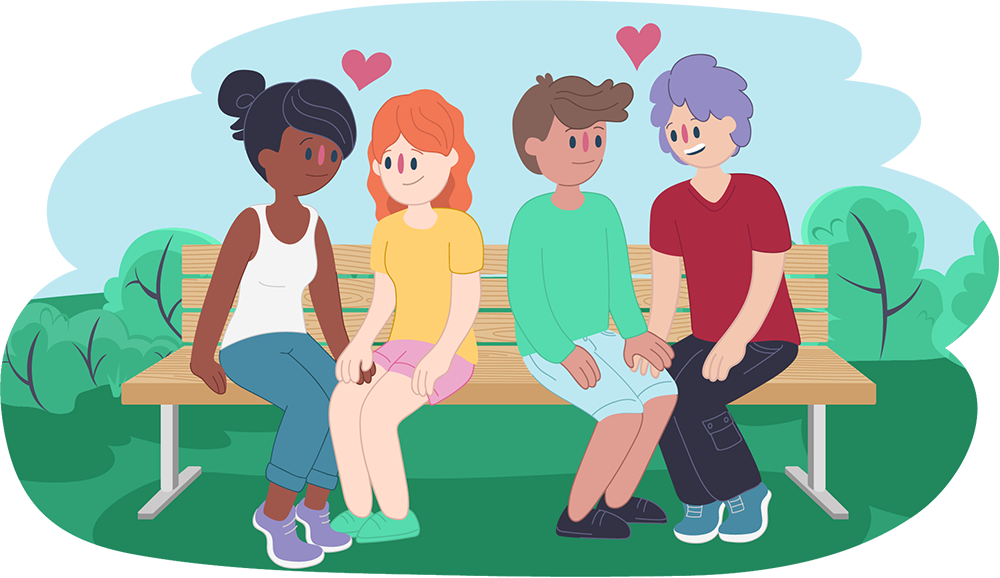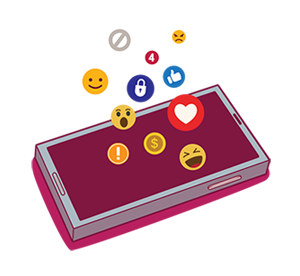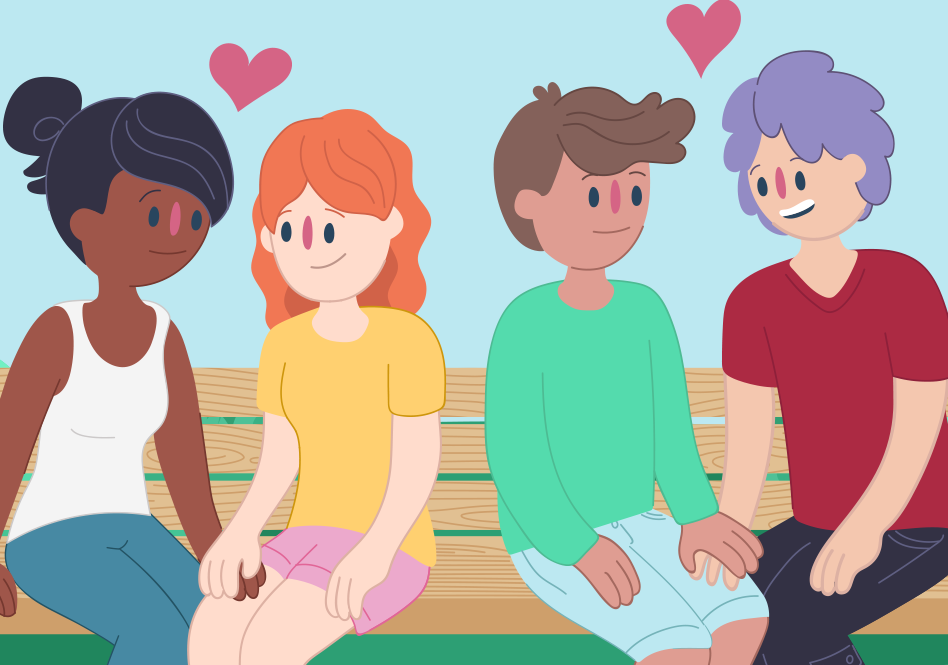Sexual Identity
Relationships come in many forms. Learn more about sexuality and the different attractions and relationships people can have.

This article was written and reviewed by people in the LGBTIQA+ communities.
What is sexual identity?
Sexual identity or sexuality means how you experience and express yourself sexually – including who you’re attracted to and want to have emotional, romantic, and/or sexual relationships with.
There are many ways that people define their sexual identity. It is estimated that at least up to 11% of people in Australia may be LGBTIQA+ (not including those who are questioning their sexuality).
"Negative beliefs and attitudes are common in cultures and religions that only believe being straight is ‘normal’. It takes courage to be who you really are in a world that thinks being straight is the norm. Talk to someone you can trust if you ever feel confused, pressured or scared to be yourself." - Alex, Kids Helpline
How do I know what my sexual identity is?
- Many people know from very young who they’re attracted to and the kinds of relationships they want to have. For others, it is an ongoing process of discovery that changes throughout their life.
- The way you define your sexual identity can be the same all your life or might change as you get older. Some people choose not to define their sexuality at all.
- Just because you define your sexual identity one way now, it doesn’t mean you can’t define yourself another way later on. This doesn’t mean you’re ‘confused’ or ‘choosing’. It just means you’re still learning about yourself, who you are attracted to and the kinds of relationships that feel right to you.
- It’s normal to question your sexual identity, no matter how you identify. Feelings of uncertainty, confusion, and curiosity are a normal ongoing part of trying to understand who you are. For many people, this uncertainty is created by cultures, religions and people that believe sexual identity is a ‘choice’ or assume that being straight is ‘normal’.
- But it is important to know that sexuality is NOT a choice. It varies from person-to-person and is a natural part of who you are. Everyone has the right to feel comfortable and to be accepted for who they are. Feeling comfortable to be yourself is important to your wellbeing.
Does questioning my sexuality mean I'm...?
Understanding yourself is a lifelong process, so it’s normal to feel uncertain or conflicted about your sexuality. But keep in mind:
- The bodies and gender(s) of people you are attracted to, have sexual thoughts about, or experiment with doesn’t automatically define your sexuality.
- You don’t have to be dating or sexually active to know your sexual identity. You might be dating or sexually active and still not feel sure about your sexual identity.
- You might have emotional and romantic feelings for people, but no sexual attraction or sexual interest in anyone, and this is ok too.
For some people, trying to make sense of their sexual identity can be confronting, confusing and emotionally difficult. For many LGB+ people, these feelings are usually caused by homophobia or biphobia and are common when the attractions and relationships you have are not commonly accepted in your community.
For others, understanding their sexual identity, being themselves, and being around others like them is usually liberating and exciting.
We all have the right to be ourselves without needing to explain or justify this to anyone. Feeling pressure to hide who you are attracted to can feel very stressful. Like anyone that feels unable to be themselves, this can be stressful and lead to mental and physical health problems.
What can I DO to help me make sense of my sexual identity?
If you’re looking for ideas that might help you make sense of your sexual identity, here are a few suggestions that may help:
Check these out too:
Gender Identity
There’s more to gender identity than being male or female. Learn ...
READ MESexual, gender and bodily diversity discrimination
Many LGBTIQA+ people face discrimination and prejudice that can affect their health, ...
READ MEHow to ask for help
Sometimes we need help but we're not able to ask for it. ...
READ MEExpressing your feelings
Expressing how you feel can help you cope when life throws you ...
READ ME
Talking helps! We’re here for you.
No problem is too big or too small.
We're here 24 hours a day, 7 days a week






